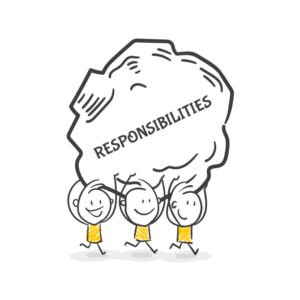Productivity
Peer Recognition for An Ethically Sound Foundation

An ethically sound organization often needs very little marketing. Global conglomerates such as 3M, Apple, the Tata Group, Accenture, and many more are often ranked highly on surveys focused on the ethical soundness of organizations. The reasoning behind this is rather simple and straightforward; these companies have earned the trust, admiration, and respect of the general public. Whether it is their clients, partners, or their employees, all of them are assured of a clean and ethically sound business transaction. Such reputations are impossible to be built overnight and often require years of good work to foster public goodwill.
As an entrepreneur, if you too wish to build an ethically sound organization, you will have to take a page from the books of these corporate giants. However, many have trodden down this path and seldom found any success. The reasoning behind this is rather simple; it is impossible to encompass all the tricks and procedures implemented by such companies on a global scale and emulate them on a microscopic level. Furthermore, an organization that is already well established does things way differently than organizations that are yet in their infancy. Lastly, the problems faced by such corporate giants are poles apart from the problems faced by startups. As a result of this, simply taking a page from the books of these Goliaths will make little sense and have an even lesser impact.
If you wish to truly lay the foundation for an ethically sound organization, looking toward peer recognition and considering it to be a suitable catalyst for bringing about a change is the realistic way of going forward. Peer recognition can certainly help you guide your employees and instill a work culture that uplifts the entire organization. We at PeerFives help our clients every step of the way with this process, and some of the ways in which we help build an ethically sound organization are listed below:
1. Accountability

Every employee of the organization is accountable for the tasks assigned to them. Having an ethically sound organization requires each employee to be accountable for their work at all times. With the help of peer recognition, everyone will be well aware of the work at hand and will do their best to complete it within the stipulated timeline. The employees realize the risk-reward scenario at play and would always want to end up with the latter. A steady stream of recognition and rewards will keep employees hungry for more, often putting their best effort not just for self-interest but for the benefit of the organization on the whole.
2. Responsibility

The organization will meet all its targets only when every employee takes up a certain responsibility. Responsibilities taken on or given both need to be interpreted in the right spirit. Peer recognition is one way to ensure every employee exhibits a strong sense of responsibility. The same applies to owning up to mistakes and the willingness to learn, where taking responsibility via peer recognition will help the employee development for the betterment of the organization.
3. Transparency

For any globally renowned organization with strong ethical values, having transparency in not just the way they do their business but the way in which work is managed internally is a big criterion. Having a workplace where every employee enjoys a good level of co-operation from newbies all the way up to the CEO. Along with transparency, there is the need to be fair and just at all times. Using a peer recognition app such as PeerFives helps you ensure that every employee is rightly credited, recognized, and rewarded for the work they deliver.
4. Order and Discipline

To be an ethically strong organization, there is the need to be orderly and disciplined. While this is often mistaken for strictness and rigidity in organizations, the need is to focus solely on assisting each employee to be as self-disciplined as possible. Self-discipline can never be demanded, and it has to come from within, and to do so, having a streamlined peer recognition policy helps.
5. Honesty

Honesty is a basic virtue expected in the employees of any ethically sound organization. The basics of not giving out misleading information to clients or peers, conducting business without the intention to cheat or lie, and working in the best interest of the company without compromising on morals are all possible when a good peer recognition program is at the crux of the organization.
6. Integrity

The nine-letter word often weighs a lot more in the context of the corporate world. Organizations & employees with unshakeable moral principles and a code of conduct that extends beyond simply being good and always doing what’s right are known to be invaluable. If your organization wishes for the same, then it is simply unfathomable not to have a peer recognition program in place.
In conclusion, peer recognition programs lead to the overall promotion of all the above-mentioned virtues in the employees of an organization. When such a culture is actively promoted using peer recognition tools such as PeerFives, it no longer remains to be merely a practice but cultivates into a habit. This habit is bound to yield positive results for the organization on the whole, and gradually over time, you will witness how your organization is morally and ethically sound. Clients will be eager to work with you, and top talent will join your organization without giving your HR teams a massive headache.
To build an ethically sound organization, start your PeerFives journey now! Take advantage of our FREE 30-day trial and experience the difference yourself.
